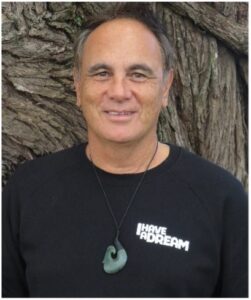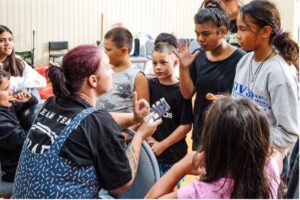The pain of multi-generational poverty is profound and persistent, resulting in children facing lifetimes of disadvantage in health, housing, education and employment outcomes.
But there are solutions, and one has proven over the past two decades that it works – and that it’s replicable, scalable and “cost efficient” in social investment terms.
 It’s also proof, says I Have a Dream New Zealand founder and chair Scott Gilmour that nearly every child can succeed if they have the long-term advocacy, resources and supplemental activities that many middle-class kids enjoy.
It’s also proof, says I Have a Dream New Zealand founder and chair Scott Gilmour that nearly every child can succeed if they have the long-term advocacy, resources and supplemental activities that many middle-class kids enjoy.
He will lead our September 29 Catalyst Kōrero about how to break the grinding cycle of intergenerational poverty. Gilmour says nearly all proven solutions require barriers between siloed government departments to be broken down, and more than philanthropy to fund them.
“We need to have these conversations – the ‘how’ and the ‘who’. We know that every kid deserves support, encouragement and hope. And that long-term solutions, not quick fixes, are our best opportunity to provide a fair chance for all and create a stronger, more equitable society.”
“Amid this era of cutbacks, the question is, can the government’s social services adopt proven innovations from the charitable and private sectors,“ Gilmour asks? “Come along and find out how.”
I Have a Dream (IHAD) started in East Harlem in 1981. Each project ‘adopts’ a class cohort of children in an economically deprived area as they begin school and provides wraparound support throughout their high school careers and then on to tertiary education.
 Gilmour founded the first IHAD programme outside of the US in a decile one South Auckland school in 2003. Eighty percent went on to post-secondary education, compared to 30% of the class a year earlier. IHAD is now operating in Whangarei and the Hutt.
Gilmour founded the first IHAD programme outside of the US in a decile one South Auckland school in 2003. Eighty percent went on to post-secondary education, compared to 30% of the class a year earlier. IHAD is now operating in Whangarei and the Hutt.
Sunday, September 29, 6 to 7:30 pm at The Rees Hotel Queenstown registration required HERE to ensure your seat. Please bring cash for your koha, which will be given to Central Lakes Family Services